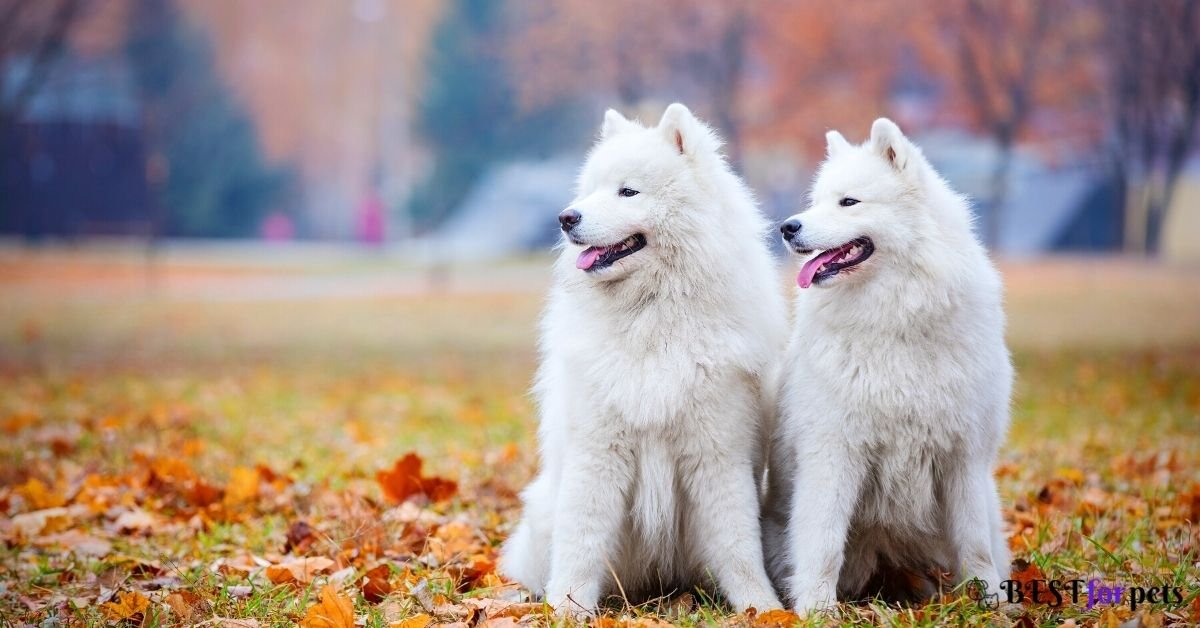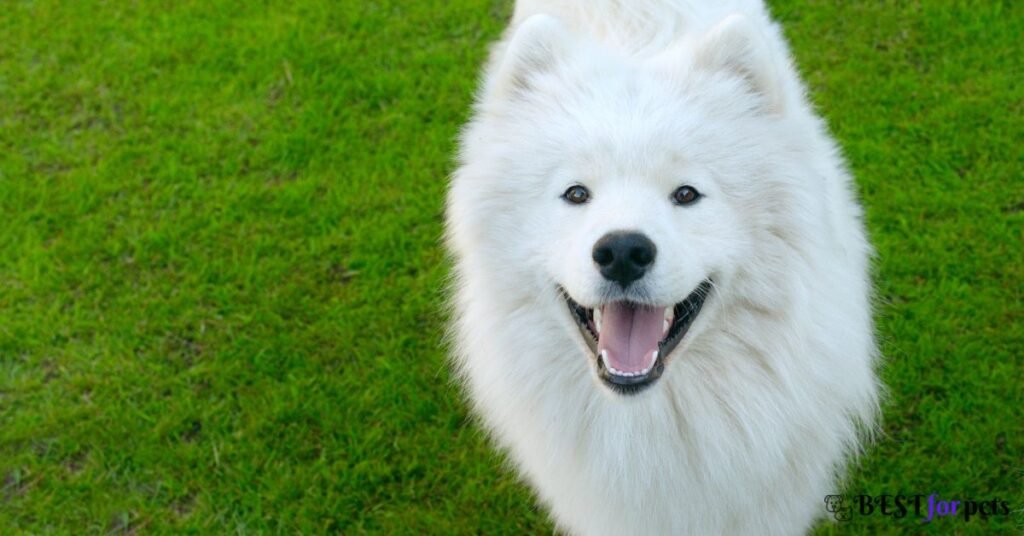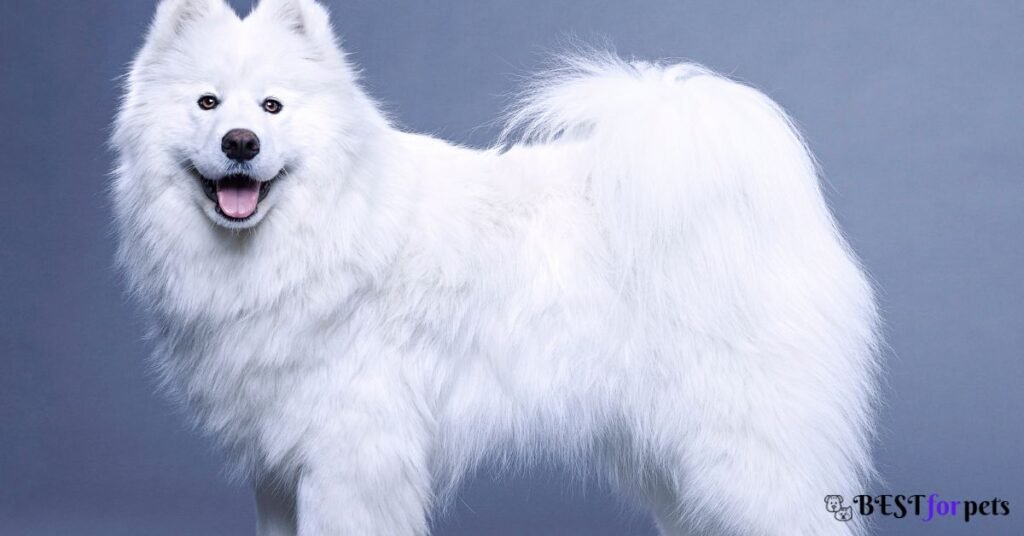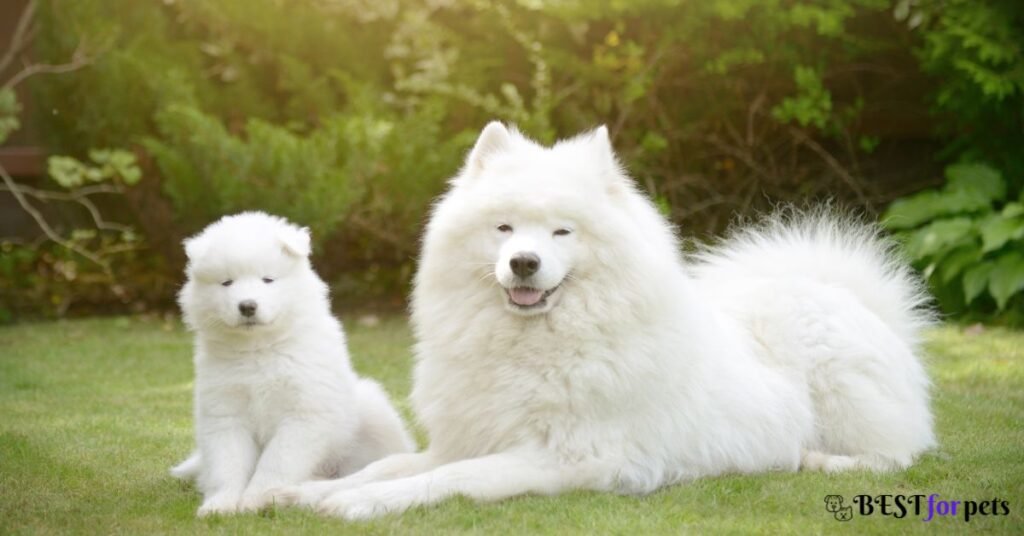//Prices//
Samoyed Dog Price In India

Samoyed Dog Prices in Different Locations
Different Locations |
Samoyed Dog Prices |
| Samoyed price in Kolkata | Rs 50,000 to Rs 120,000 |
| Samoyed price in Delhi | Rs 60,000 to Rs 130,000 |
| Samoyed price in Bangalore | Rs 60,000 to Rs 130,000 |
| Samoyed price in Goa | Rs 45,000 to Rs 100,000 |
| Samoyed price in Hyderabad | Rs 45,000 to Rs 100,000 |
| Samoyed price in Mumbai | Rs 60,000 to Rs 130,000 |
The Samoyed Dog price in India can range between Rs 45,000 to Rs 130,000. Samoyed Dog price in India depends on many factors. It is not that the Samoyed Dog price will same across India. It depends on several factors that are mentioned below.
Various Factors That Affects The Price Of Samoyed Dog
The price of a Samoyed dog can vary depending on a number of factors, including:
1. Location:
The location of the breeder or seller can affect the price of a Samoyed dog. Samoyed dogs that are bred and sold in urban areas may be more expensive than those in rural areas.
2. Pedigree:
The pedigree of the Samoyed dog can affect the price. Samoyed dogs that come from a long line of champion bloodlines may be more expensive than those without a known pedigree.
3. Age:
The age of the Samoyed dog can also affect the price. Puppies are typically more expensive than adult dogs.
4. Gender:
The gender of the Samoyed dog can also affect the price. Female Samoyed dogs may be more expensive than males.
5. Size:
The size of the Samoyed dog can also affect the price. Larger Samoyed dogs may be more expensive than smaller ones.
6. Coat color:
The coat color of the Samoyed dog can also affect the price. Samoyed dogs with a pure white coat may be more expensive than those with a cream or biscuit-colored coat.
7. Show quality:
Show quality Samoyed dog may be more expensive than pet quality.
8. Health:
Samoyed dogs that have been health-checked and come with health guarantees may be more expensive than those without.
An Introduction To Samoyed Dog
Appearance –
The Samoyed dog is a medium-sized breed that typically weighs between 50-60 pounds and stands 18-24 inches tall at the shoulder. They have a thick, fluffy coat that is typically white or cream in color. Their eyes are almond-shaped and typically dark brown in color. Their ears are small and triangular in shape, and they have a strong, athletic build.
Temperament –
The Samoyed dog is known for its friendly and outgoing personality. They are very sociable and love to be around people and other animals. They are also known for their intelligence and trainability, which makes them easy to train and a great companion for families.
Despite their friendly nature, Samoyed dogs do have a strong herding instinct and may try to herd children and other pets. This can be managed with proper training and socialization.

History –
The Samoyed dog is believed to have originated in the region of Siberia and the surrounding areas of Russia. These dogs were bred by the nomadic Samoyede people, who used them to herd reindeer, hunt, and provide warmth in the harsh winter months. The Samoyed dog is considered one of the oldest dog breeds in existence, with evidence of their existence dating back to at least 3,000 years ago.
In the 19th century, Samoyed dogs were brought to Europe and America, where they quickly became popular as working dogs and pets. Today, they are still used for herding and hunting in some parts of the world, but they are primarily kept as companion animals.
Characteristics –
The Samoyed dog is a medium-sized breed that is known for its thick, fluffy coat that is typically white or cream in color. These dogs have a distinctive “smiling” expression, which is caused by the upward curve of their lips. They have a strong, athletic build and a friendly, outgoing personality.
One of the most notable characteristics of the Samoyed dog is its thick, fluffy coat. This coat is designed to protect them from the cold and is made up of a thick undercoat and a long, coarse outer coat. This coat requires regular grooming to keep it in top condition, as it is prone to matting and tangling.
Training for Samoyed Dog
Training a Samoyed dog can be a fun and rewarding experience, but it does require patience and consistency. Here are some tips to help you train your Samoyed dog:
Start early:
The earlier you start training your Samoyed dog, the better. Puppies are more receptive to training and will learn faster than older dogs.
Use positive reinforcement:
Positive reinforcement is the most effective training method for Samoyed dogs. Reward your dog with treats or praise when they perform a desired behavior.
Socialize your dog:
Samoyed dogs have a strong herding instinct, which means they may try to herd children and other pets. Socializing your dog from an early age will help them to be more comfortable around other people and animals.
Address specific needs:
Samoyed dogs have thick, fluffy coat that requires regular grooming, they may also have a tendency to pull when on a leash, make sure to address these specific needs.
Provide enough exercise:
Samoyed dogs are an active breed and require regular exercise to keep them healthy and happy. They enjoy activities such as hiking, running, and playing fetch.
Basic obedience training:
Basic obedience training is a must for all dogs, it will help you to understand each other better and make your dog more manageable.
Be consistent:
Consistency is key when training a Samoyed dog. Stick to one command for each behavior and use it consistently.

Samoyed Dog Health Issues
Samoyed dogs are generally considered a healthy breed, but like all breeds, they can be prone to certain health issues. Some of the most common health issues that Samoyed dogs may experience include:
• Hip Dysplasia:
This is a genetic condition that affects the hip joint, causing pain and lameness. It is more common in larger breeds such as the Samoyed.
• Bloat:
This condition is also known as Gastric Torsion or twisted stomach. It is a serious and potentially life-threatening condition that can occur when the stomach fills with gas or food and twists on itself.

• Diabetes:
Samoyed dogs are known to be prone to diabetes, which is a condition in which the body is unable to properly process sugar.
• Hypothyroidism:
This is a condition in which the thyroid gland does not produce enough hormones. It can cause weight gain, hair loss, and skin problems.
• Allergies:
Samoyed dogs may be prone to skin allergies, which can cause itching, redness, and hair loss.
• Progressive Retinal Atrophy (PRA):
This is a degenerative eye disease that can lead to blindness. It is caused by the gradual degeneration of the retina.
Samoyed dog Care Tips
Caring for a Samoyed dog requires a bit of extra attention, as their thick, fluffy coat requires regular grooming and their herding instincts need to be managed. Here are some care tips to help keep your Samoyed dog healthy and happy:
Grooming:
Samoyed dogs have thick, fluffy coat that requires regular grooming to keep it in top condition. Brush your dog’s coat at least once a week to prevent matting and tangling. You should also trim their coat around their ears and feet to keep them looking neat and tidy.
Training and socialization:
Samoyed dogs have a strong herding instinct, which means they may try to herd children and other pets. It’s important to provide your dog with proper training and socialization to help manage this behavior.
Exercise:
Samoyed dogs are an active breed and require regular exercise to keep them healthy and happy. They enjoy activities such as hiking, running, and playing fetch.
Diet:
Samoyed dogs require a balanced diet that is rich in protein and essential fatty acids. Avoid feeding them table scraps and stick to high-quality dog food.
Regular vet check-ups:
To ensure that your Samoyed dog is healthy and happy, it’s important to provide them with regular vet check-ups. This will help to catch any health issues early and provide your dog with the best possible care.
Keep them cool:
Samoyed dogs have thick coats that can make them sensitive to heat. Make sure to keep them in a cool place and provide them with plenty of water, especially during hot weather.
Samoyed Dog Lifespan
The lifespan of a Samoyed dog is typically around 12-15 years. However, with proper care, nutrition, and regular vet check-ups, some Samoyed dogs have been known to live up to 17 years.
Frequently Asked Questions
Is Samoyed dog a good family dog?
Yes, Samoyed dogs are known for their friendly and outgoing personalities, making them great companions for families. They are also good with children and other pets, making them a great addition to any household.
Can a Samoyed live in India?
Yes, a Samoyed can live in India, but it is important to note that they are not well-suited for the hot and humid climate. They require a cool and well-ventilated environment, so it may be necessary to provide them with air conditioning or keep them indoors during the hottest parts of the day.
Are Samoyed dogs high energy?
Yes, Samoyed dogs are an active breed and require regular exercise to keep them healthy and happy. They enjoy activities such as hiking, running, and playing fetch. They require a lot of physical and mental stimulation to keep them entertained and engaged.
Are Samoyeds lazy dogs?
No, Samoyed dogs are not lazy, they are an active breed that requires regular exercise and mental stimulation. However, they do enjoy lounging and cuddling with their owners, but they still need to get enough exercise and activities to keep them mentally and physically healthy.
Do Samoyeds bark much?
Samoyed dogs are not known to be excessive barkers, but they may bark to alert their owners of any potential danger or when they are excited or bored. Training and socialization can help to manage this behavior.

